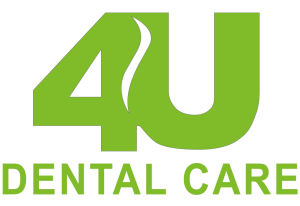Introduction
Dental emergencies can strike at any moment, causing severe pain and discomfort. Knowing how to handle common dental emergencies is crucial for maintaining your oral health and reducing the risk of long-term damage. In this blog, we will discuss five common dental emergencies and provide tips on how to handle them. For professional advice and treatment, it’s always best to consult with a trusted dentist. If you’re in the Orange County area, you can visit https://4udentalcare.com/ for comprehensive dental care services.
Toothache
A toothache is one of the most common dental emergencies, and it can be excruciatingly painful. Toothaches can occur due to various reasons, including tooth decay, gum disease, or an abscess. If you experience a toothache, follow these steps:
- Rinse your mouth with warm water to clean the affected area.
- Floss gently to remove any trapped food particles that may be causing the pain.
- If the pain persists, avoid placing aspirin directly on the gum or tooth, as it can damage the tissue. Instead, take over-the-counter pain relievers as directed.
- Schedule an appointment with your dentist at https://4udentalcare.com/ as soon as possible to diagnose and treat the underlying cause of the toothache.
Knocked-Out Tooth
A knocked-out tooth is a dental emergency that requires immediate attention to have any chance of saving the tooth. Whether it’s due to a sports injury or an accident, follow these steps:
- Handle the tooth by the crown (the top part) and avoid touching the root.
- place the tooth in a container with milk, saliva, or a tooth preservation product. Do not use water.
- Seek dental care at https://4udentalcare.com/ immediately. Time is crucial in saving a knocked-out tooth.
Broken or Chipped Tooth
A broken or chipped tooth can be painful and affect your smile’s appearance. To manage this dental emergency:
- Rinse your mouth gently with warm water to clean the area.
- If there’s bleeding, apply a clean piece of gauze or a damp tea bag to the affected area for about 10 minutes or until bleeding stops.
- Use a cold compress on the outside of the mouth to reduce swelling and alleviate pain.
- Contact your dentist at https://4udentalcare.com/ to schedule an appointment for repair. They may recommend dental bonding, veneers, or other suitable treatments to restore your tooth’s integrity.
Lost Filling or Crown
A lost filling or crown can expose the sensitive inner layers of your tooth, causing discomfort and pain. Here’s what to do:
- If you lose a filling, place a piece of sugarless gum or dental cement over the cavity as a temporary measure.
- If a crown comes loose, clean the inside of the crown and your tooth gently.
- Schedule an appointment with your dentist at https://4udentalcare.com/ to have the filling or crown properly restored or replaced.
Dental Abscess
A dental abscess is a severe infection that can occur in the tooth’s root or the space between the teeth and gums. It often presents with severe pain, swelling, and fever. If you suspect you have a dental abscess, take the following steps:
- Rinse your mouth with warm saltwater to alleviate pain and reduce inflammation.
- Use a cold compress on the outside of your mouth to control swelling.
- Contact your dentist at https://4udentalcare.com/ immediately. Dental abscesses require professional treatment, which may include draining the abscess and prescribing antibiotics to eliminate the infection.
READ MORE | The Importance of Regular Dental Check-Ups: Maintaining Your Oral Health at Viva Dental Care
Conclusion
Dental emergencies can be distressing, but knowing how to handle them promptly can make a significant difference in preserving your oral health. While these tips can provide temporary relief, it’s essential to seek professional dental care from a trusted provider like 4u Dental Care. Regular dental check-ups and maintaining good oral hygiene can also help prevent many dental emergencies. Remember that the best way to protect your smile is through preventive care and seeking professional help when emergencies arise.
